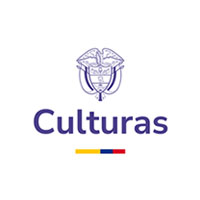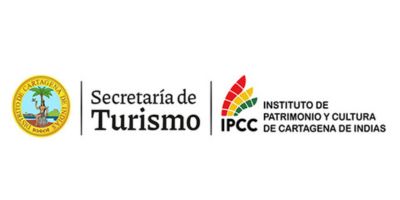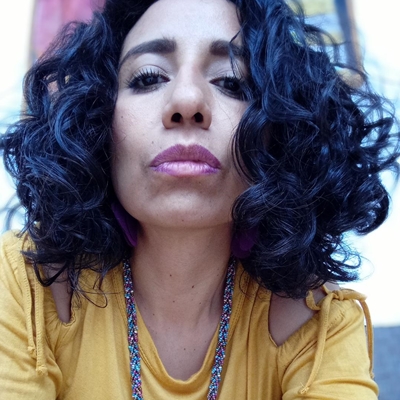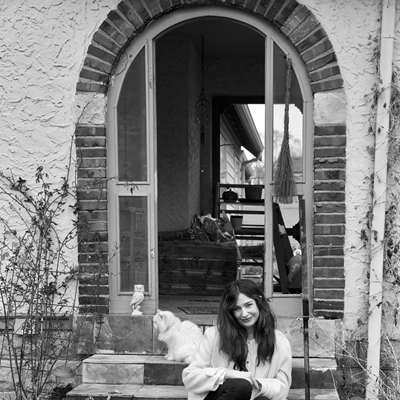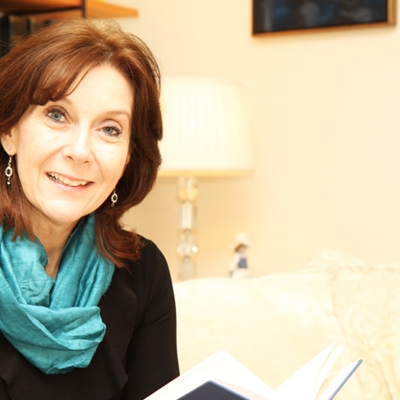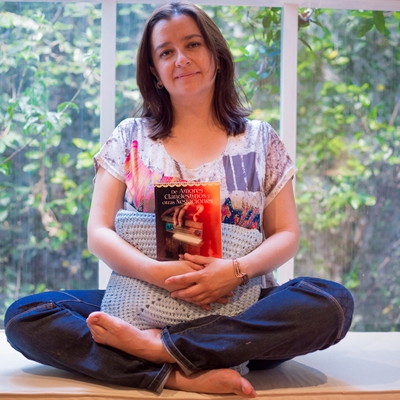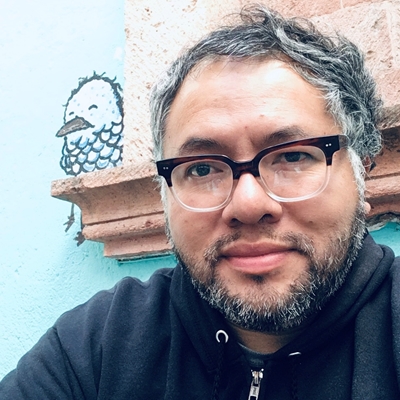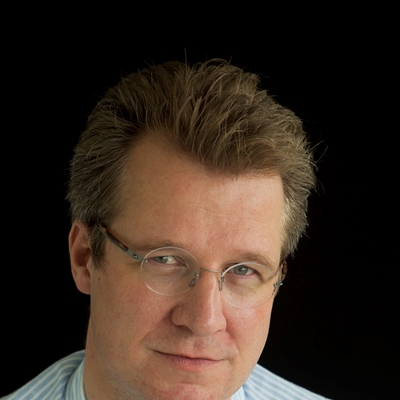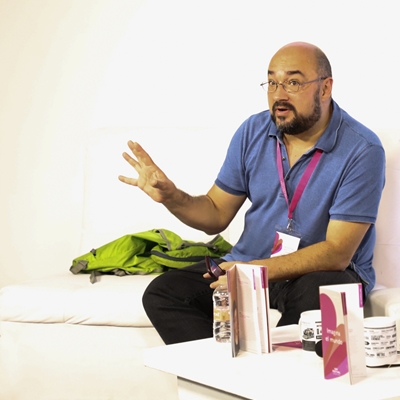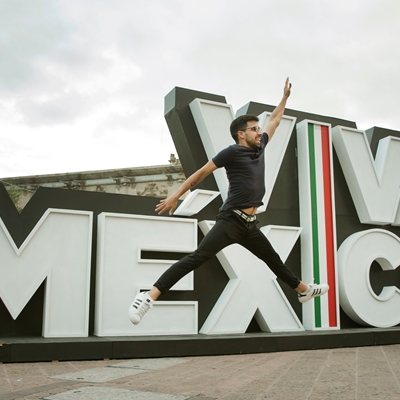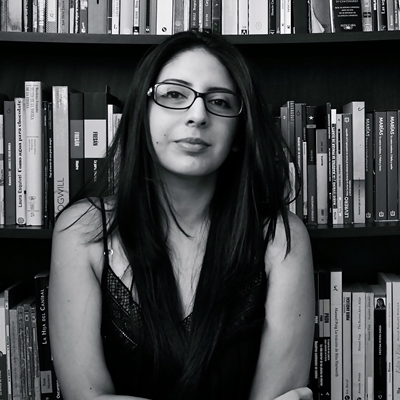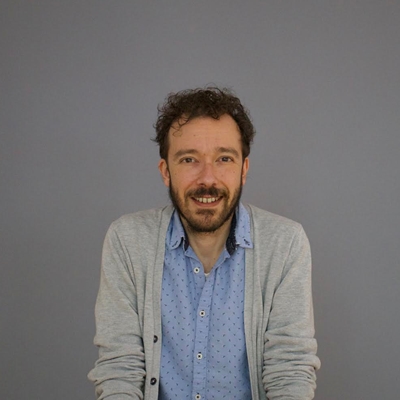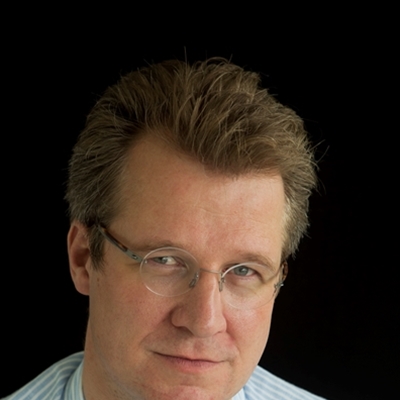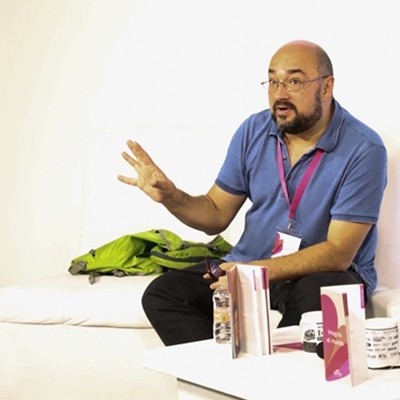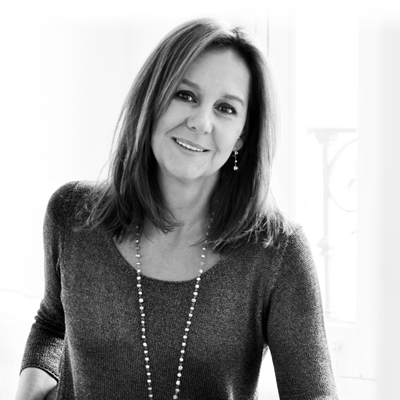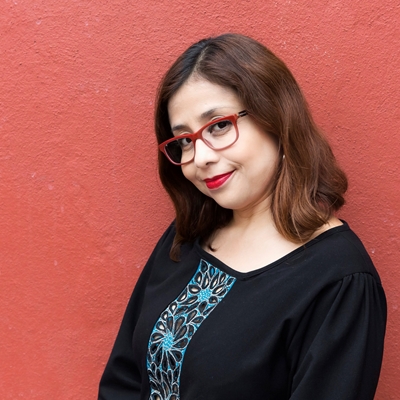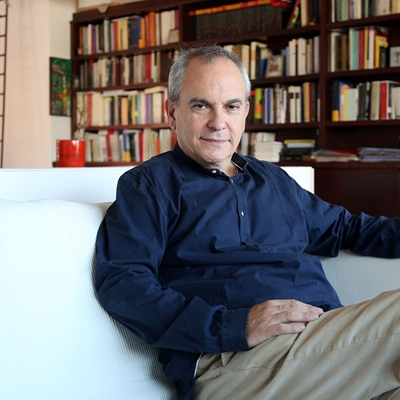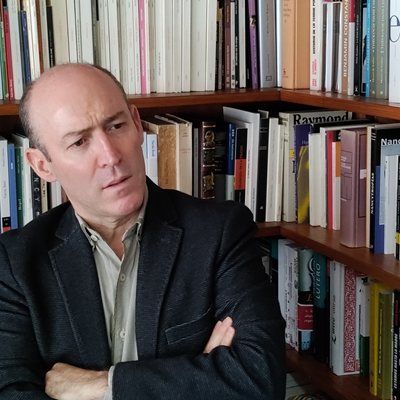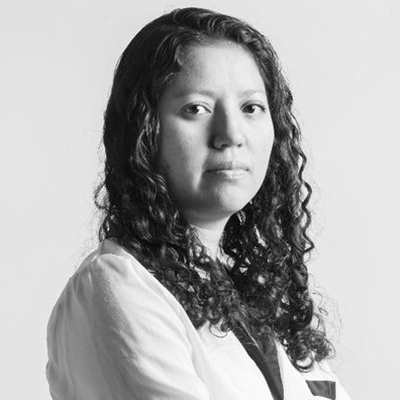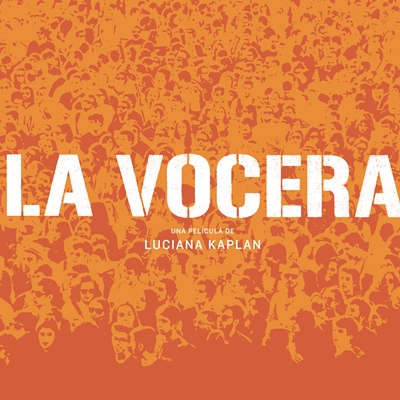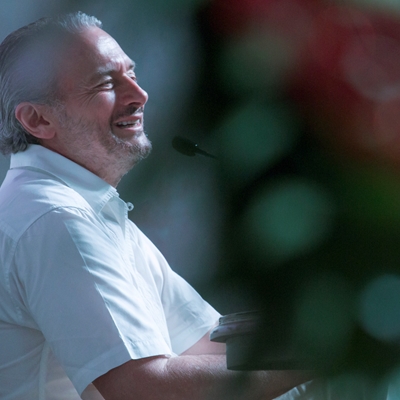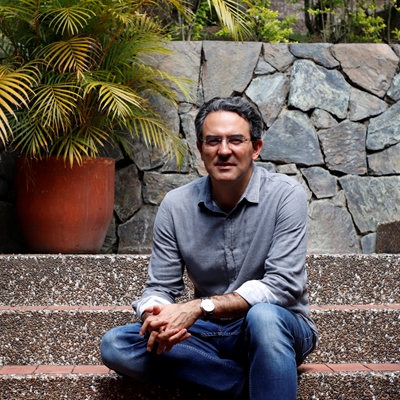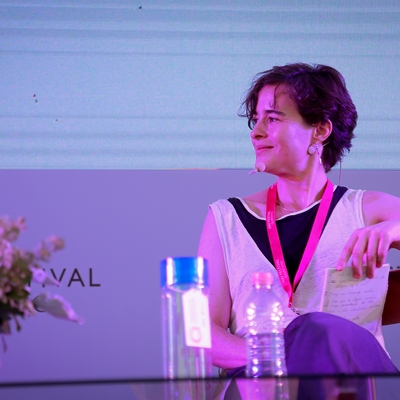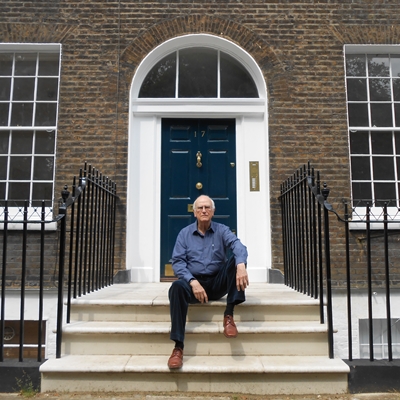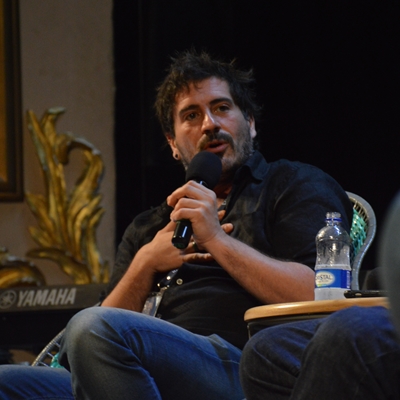Online events
Event 172
Colm Tóibín reunites us with the heroine of his 2009 novel, Brooklyn, in his sequel Long Island. We find Eilis Lacey 20 years on, in the 1970s, living with her husband, Tony Fiorello, and children on Long Island, rather too close to her Fiorello in-laws. A shocking piece of news propels Eilis back to Ireland, to a world she thought she had long left behind and to ways of living, and loving, she thought she had lost. Tóibín is the current Laureate for Irish Fiction. His previous novels include The Master, The Testament of Mary and House of Names. His work has been shortlisted for the Booker multiple times, and has won both the Costa Novel Award and the Impac Award. He talks to Hay Festival President Stephen Fry.

Event 51
Gabriela Aguirre, Rocío G. Benítez, Mererid Hopwood, Dalia Larisa Juárez and Rafael Volta
A global reading for the pandemic’s fatalities
Llwyfan Digidol Cymru – Wales Digital Stage
The greatest loss of the pandemic has been the disaster of millions of people losing their own lives or loved ones to the illness, and so this event is proposed as a homage to every one of them, through the art and work of acclaimed writers. This reading is part of a global action that began with the Berlin International Literature Festival (https://www.literaturfestival.com/), at which many cultural organizations around the world commemorated those who are no longer with us, through poetry and literature. With the participation of Gabriela Aguirre (Mexico), Rocío G. Benítez (Mexico), Mererid Hopwood (United Kingdom), Daria Larisa Juárez (Mexico) and Rafael Volta (Mexico).
Event in English and Spanish with Spanish subtitles
With the support of the Arts Council of Wales
Event 191
One of football’s most successful players ever, Gary Lineker’s latest act has seen him launch a podcasting empire. As founder of Goalhanger Productions, Lineker produces hit shows The Rest is History, The Rest is Entertainment, The Rest is Football and The Rest is Politics, adding much-needed nuance and insight into our national discourse. Join the England legend and Match of the Day presenter for a wide-ranging discussion of his career in sport, media and storytelling. He talks to historian and broadcaster David Olusoga.
Sponsored by Partners&

Event 52
Philipp Blom in conversation with Juan Carlos Pérez (Spanish version)
Llwyfan Digidol Cymru – Wales Digital Stage
The German historian, writer and journalist Philipp Blom has established himself in recent years as an author of many talents, writing works on the history of knowledge, essays and novels that have been translated and published around the world. His two most recent works Nature’s Mutiny (2020) and Was auf dem Spiel steht (2021) respectively tackle a previous period of climate change and what that meant for society, and some of the most urgent matters facing us today with all their natural and socio-political circumstances and difficulties, with an emphasis on the need to prepare for the coming transformations. In conversation with Juan Carlos Pérez.
Buy books by Philipp Blom at Librerías Gandhi
Register to watch onlineSubscribe to Bookmate and read 'El motín de la naturaleza' by Philipp Blom
Register to watch onlineWith the support of the Goethe-Institut Mexiko
Buy the books for this event
Event 53
Latin American literature is in a process of renewal and growth, given strength by new, young voices who are breaking with established formal and thematic norms, offering readers the chance to see contemporary Latin American realities from very different perspectives. On this occasion we bring together two of those voices, selected from the recent list drawn up by Granta magazine, which has named the 25 best young Spanish-language fiction writers. Carlos Manuel Álvarez (Cuba) studied Journalism at the University of Havana, founded the independent magazine El Estornudo and has contributed to various international publications such as The New York Times, The Washington Post and El País. In 2017 he was selected as one of the 39 best Latin American writers under 40 for the Bogotá39 list. His most recent novel is Falsa guerra, in which a number of characters are drifting, in the geographical or figurative sense, in the USA, Europe or Cuba. Paulina Flores (Chile) is a Literature graduate from the University of Chile and is the author of Humiliation (Roberto Bolaño Prize), which has been acclaimed by critics. At this event she will present her novel Isla decepción, a story based on fact and set in Punta Arenas, Chile. In it, Marcela, the protagonist, leaves behind her life in Santiago to visit Miguel, her father, and to renew herself. There she discovers that Miguel is hiding a young Korean who has fled his country. Mónica Ojeda (Ecuador) is the author of the book of poetry El ciclo de las piedras (2015), of the novels La desfiguración Silva (2014), Mandíbula (2018) and Nefando (2016, 2019), and of the book of short stories Las voladoras (2020). She was also included in the Bogotá39-2017 list. In conversation with Francesco Manetto.
Buy books by Paulina Flores at Librerías Gandhi
Register to watch onlineBuy books by Carlos Manuel Álvarez at Librerías Gandhi
Register to watch onlineSubscribe to Bookmate and read 'Falsa guerra' by Carlos Manuel Álvarez
Register to watch onlineSubscribe to Bookmate and read 'Eres buena y lo sabes' by Paulina Flores
Register to watch onlineSubscribe to Bookmate and read 'Las voladoras' by Mónica Ojeda
Register to watch onlineBuy 'Los mejores narradores jóvenes en español 2'
Register to watch onlineBuy 'Mandíbula' by Mónica Ojeda at Librerías Gandhi
Register to watch onlineBuy 'Historia de la leche' by Mónica Ojeda at Librerías Gandhi
Register to watch onlineBuy the books for this event
Event 262
Humans are capable of both love and hate, amazement and disgust, fun and misery. So why do we live in a world that constantly urges us to hate ourselves and others, to be repulsed by our own bodies, to be ashamed of pleasure, to be embarrassed by fun? In her new collection, the author and poet asks why we have been taught to hate, and if we might learn to love again. She won the Ted Hughes Award for Nobody Told Me, wrote the three poetry collections Plum, Cherry Pie and Papers, adapted the Greek tragedy Antigone and co-wrote the play Offside with poet Sabrina Mahfouz.
Sponsored by Hay Thursday Market

Event 274
Two giants of historical fiction discuss their stories, and how and why they tell them. Follett’s latest novel The Armour of Light is set in his fictional Kingsbridge in 1792, with revolution in the air. As industrial change sweeps the land and a tyrannical government is determined to make England a mighty commercial empire, a small group of spinners and weavers fight for a future free from oppression. Mosse’s The Ghost Ship is an epic story of concealed identity, piracy and revenge, ranging from Paris to Amsterdam and the Canary Islands in the early 1600s. The Ghost Ship hunts pirates to liberate those enslaved during the course of their merciless raids – but now it is under attack.
Sponsored by Tomatitos Tapas Bar
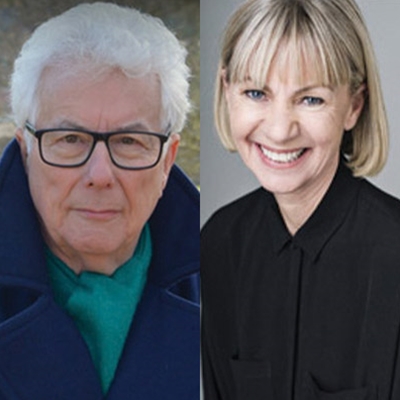
Event 52-En
Philipp Blom in conversation with Juan Carlos Pérez (English version)
Llwyfan Digidol Cymru – Wales Digital Stage
The German historian, writer and journalist Philipp Blom has established himself in recent years as an author of many talents, writing works on the history of knowledge, essays and novels that have been translated and published around the world. His two most recent works Nature’s Mutiny (2020) and Was auf dem Spiel steht (2021) respectively tackle a previous period of climate change and what that meant for society, and some of the most urgent matters facing us today with all their natural and socio-political circumstances and difficulties, with an emphasis on the need to prepare for the coming transformations. In conversation with Juan Carlos Pérez.
Buy books by Philipp Blom at Librerías Gandhi
Register to watch onlineSubscribe to Bookmate and read 'El motín de la naturaleza' by Philipp Blom
Register to watch onlineWith the support of the Goethe-Institut Mexiko
Buy the books for this event
Event 54
Maria Dueñas in conversation with Irma Gallo
Sede Digital Hay Querétaro
María Dueñas (Spain) is the author of the publishing phenomenon Time in Between (2009), which, apart from becoming a bestseller has also been made into an award-winning television series. She has since published four novels, the last of which has been Sira (2021), the sequel to Time in Between (2009). It is set after the Second World War in London, Jerusalem, Madrid and Tangiers and tells the story of Sira Bonnard, formerly Arish Agoriuq, formerly Sira Quiroga, who is working with the British Secret Services and is confronted with scenes of tension, tragedy, risk and also motherhood. María Dueñas talks about this memorable book with Irma Gallo.
Buy books by María Dueñas at Librerías Gandhi
Register to watch onlineWith the support of UNAM
Buy the book for this event
Event 308
The internationally acclaimed Irish novelist’s Prophet Song won the Booker Prize 2023. On a dark, wet evening in Dublin, scientist and mother-of-four Eilish answers her door to find two officers from Ireland’s newly formed secret police. They’re here to interrogate her husband, a trade unionist. Ireland is in the grip of a government turning towards tyranny and when her husband disappears, Eilish finds herself caught within the nightmare logic of a society that is quickly unravelling. With literary journalist Alex Clark, Lynch discusses his devastating vision of a country at war and his deeply human portrait of a dystopia that could be just around the corner.
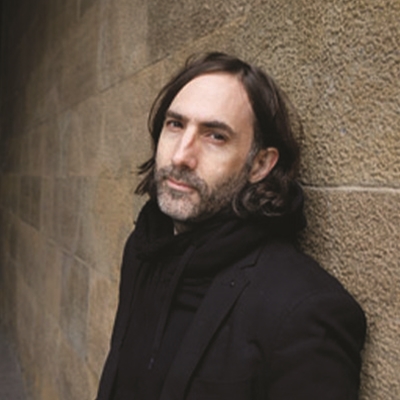
Event 363
Ever outspoken, controversial and spectacularly entertaining, Britain’s naughtiest actor and the author of This Much is True returns with more juicy, jaw-dropping stories from her eventful life and career. Join us on another unforgettable adventure through the extraordinary life and strong opinions of Miriam Margolyes.
“My new book is called Oh Miriam! – something that has been said to me a lot over the years, often in tones of strong disapproval. It contains lots more revelations and stories and discoveries and I can’t wait to share it with you all!” From being escorted off the Today programme (for saying what we were all thinking) to declaring her love to Vanessa Redgrave; from Tales of the Unexpected to Graham Norton’s sofa, she is our most loved and most outspoken national treasure. Oh Miriam! Stories from an Extraordinary Life takes you inside both her head and her heart. Buckle up for the most irrepressible, hilarious and moving event as she tells all to lawyer and writer Philippe Sands.

Event 55
Pablo d’Ors in conversation with Juan Carlos Moreno Romo
Teatro de la Ciudad
The writer, priest and founder of the Amigos del Desierto association, Pablo d’Ors is the author of the unexpected publishing success Biografía del silencio (2012), an essay about introspection, meditation and spiritual contemplation. The author now presents Biografía de la luz (2021), a look at the life of Christ, the Gospel view of this extraordinary figure and how we can incorporate this into our everyday lives. He will be conversation with Juan Carlos Moreno Romo.
Buy books by Pablo d'Ors at Librerías Gandhi
Register to watch onlineWith the support of AC/E
Buy the book for this event
Event 7
Rosaluz Pérez Espinosa and Guiomar Rovira in conversation with Yásnaya Elena Aguilar Gil
South to south conversations: thirty years of the Zapatista movement
Teatro de la Ciudad
2024 is the thirtieth anniversary of one the most important revolutionary uprisings of the last half century, one that resonated internationally and which continues to inspire emancipatory movements around the world. The Zapatista movement, with its egalitarian, community organization, its advocacy of traditional knowledge, and its impressive capacity for communication (it was one of the first resistance movements to use the Internet to publicise its ideas), offers us a living alternative to raw capitalism. At this event, Rosaluz Pérez Espinosa, who has studied at first hand the role of women in the construction of the Zapatista political project; and Guiomar Rovira (Spain), journalist, writer and author of Zapata vive, will talk to Yásnaya Elena Aguilar Gil.
With the support of Open Society Foundations and Acción Cultural Española, AC/E
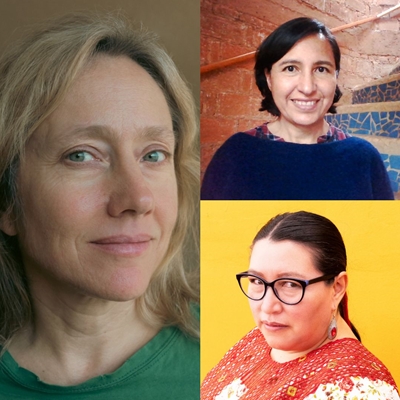
Event 56
Tribute event to Jean-Luc Nancy
Escenario Digital Hay Querétaro
Hay Festival Querétaro deeply regrets the death of Jean-Luc Nancy, who was going to participate in this edition.
This event will be a tribute to the outstading French philosopher. Professor of Philosophy and author of over 30 books, he has dealt with major themes such as national identity and nationalisms, desire and the limits of community experience. His most recent book is Sexistence (2020), which tackles the topic of human sexuality from a philosophical point of view, returning to the ideas of great thinkers such as Kant and Freud, putting an emphasis on how our experience and relationship with sex creates and feeds the individual, civilization and culture.
Subscribe to Bookmate and read 'Señales sensibles' by Jean-Luc Nancy
Register to watch online
Buy the book for this event
Event 10
The writer and journalist Leila Guerriero (Argentina), presents her latest book, La llamada, a work of fiction that knits together a series of interviews with Silvia Labayru, the Argentinean member of the Montoneros guerrilla group who, in 1976, was abducted, tortured and raped at the notorious Escuela de Mecánica la Armada, to which thousands of people were taken and killed, and from where she makes it out alive. Guerriero started interviewing Labayru in 2021, while awaiting the sentence of the first trial for sexual violence committed against abducted women during the dictatorship, at which Labayru was an accuser. In conversation with Jan Martínez Ahrens.
Event co-organized with El País
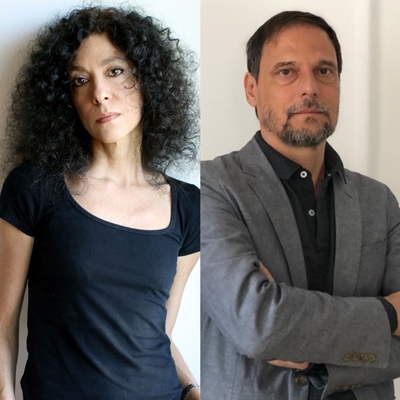
Event 57
This documentary, directed by Luciana Kaplan, focusses on the extraordinary story of María de Jesús Patricio Martínez, better known as Marichuy, the first indigenous woman to aspire to become president of Mexico, in 2017. In the end, Marichuy did not become a candidate, falling short of achieving the number of signatures required by the National Electoral Institute; however, the articulation of her proposal achieved something much more important: to unify the struggles of the indigenous peoples of Mexico into a community force, one that proposes care for the environment as a central expectation. The documentary will be followed by a discussion involving its director, Luciana Kaplan, and Samantha César, a representative of the National Indigenous Council, from the Amilcingo community (Morelos); moderated by Sonia Corona, an El País journalist.
The Digital event will start at 16:15.
Language: Spanish, Maya, Yaqui, Wixárika
Duration of the documentary: 82 minutes
Event 15
Raúl Zurita in conversation with Jan Martínez Ahrens
Teatro de la Ciudad
Raúl Zurita (Chile) is one of Latin America's most celebrated poets. He suffered during the repression of the Pinochet dictatorship and in 1979 founded, together with other artists, the Acciones de Arte collective, which undertook grassroots public art actions against the dictatorship, and in 1993, using excavators, wrote the words "NI PENA NI MIEDO" (“NO REGRET NO FEAR”) in the Atacama Desert. Zurita has received Guggenheim and DAAD (Germany) fellowships, and awards including the 2000 Chilean National Literature Prize, the 2016 Pablo Neruda Ibero-American Prize, and the 2020 Reina Sofía Ibero-American Poetry Prize. He will talk to Jan Martínez Ahrens, the Director of El País América, and the event will conclude with a poetry reading.
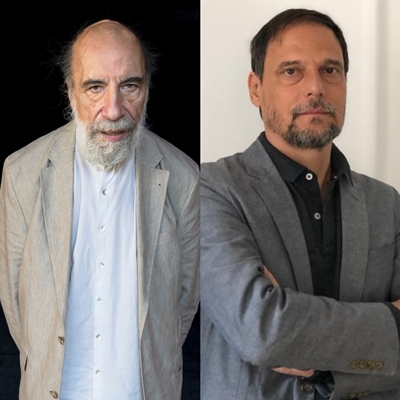
Event 58
Sergio Cabrera and Juan Gabriel Vásquez in conversation with Yael Weiss
Escenario Digital Hay Querétaro
The acclaimed Colombian writer Juan Gabriel Vásquez, whose stories and novels have been translated into 30 languages, has won numerous awards, including the 2011 Alfaguara Novel Prize, the IMPAC Prize for The Sound of Things Falling and the 6th Biblioteca de Narrativa Colombiana Prize for the short story collection Songs for the Flames. His most recent novel, Volver la vista atrás, is based on the life of the famous Colombian film director, Sergio Cabrera. This portrait of a half century that changed the world is a fascinating social investigation, one that is intimate and political at the same time. Vásquez presents his book together with Cabrera, in conversation with Yael Weiss.
Buy books by Juan Gabriel Vásquez at Librerías Gandhi
Register to watch onlineBuy Hematoma by Yael Weiss at Librerías Gandhi
Register to watch onlineWith the support of the Colombian Embassy in Mexico
Buy the books for this event
Event 18
Emiliano Monge in conversation with Javier Lafuente
Teatro de la Ciudad
Emiliano Monge (Mexico, 1978), formerly a lecturer in Politics at the National Autonomous University of Mexico, is a publisher and journalist. He debuted as an author with Arrastrar esa sombra (2018), shortlisted for the Antonin Artaud Prize. He has won a number of other awards, including the 28th Jaen Novel Prize and the 5th Otras Voces, Otros Ámbitos Prize, for El cielo árido (2012); and the Elena Poniatowska Prize for his novel Las tierras arrasadas (2015). He was also recognised in the book México20 and the Bogotá39 list (2017) as one of the best writers aged under 40 in Mexico and Latin America. His new book, Los vivos, tells the story of Hincapié and Vestigia, a couple in crisis, devastated by terrible experiences that bring on a fear of losing each other, and problems of lack of communication. In a working environment characterised by migration and constant disappearances, Vestigia seeks answers by interacting with other characters who shed light on the vacuum left by the disappeared, and the profound impact on those who wait for them. The book finds new perspectives on presence, absence and reappearance, not only physical aspects, but also ones related to language, feelings and the past. Emiliano will be in conversation with Javier Lafuente.
Actress and director Claudia Sainte-Luce will be reading fragments of Monge's novel.

Event 59
In recent decades Roger Bartra has become an essential figure for understanding what it means to be Mexican today, based on key concepts such as melancholy and a national culture’s capacity for metamorphosis. Bartra has a doctorate in Sociology from the Sorbonne, is an Emeritus Professor at UNAM and has been a guest lecturer at different universities in Mexico, the United States and Spain. On this occasion, the event will focus on two books that are essential in order to understand his worldview, the essays Chamanes y robots: Reflexiones sobre el efecto placebo y la conciencia artificial, and Melancolía y cultura. In conversation with Jacobo García.
Buy books by Roger Bartra at Librerías Gandhi
Register to watch onlineBuy the book for this event
Explore All Genres
- Afrodescendencias
- Latin America
- South to North
- Art
- Arts & Culture
- Children
- Culture
- Design
- Drawing
- Economics
- Equality
- Fashion
- Film
- Food
- Gender
- History
- Human Rights
- Indigenous Cultures
- Journalism
- Language
- Law
- Literature
- Music
- Nature & Environment
- Philosophy
- Photography
- Podcast
- Poetry
- Politics
- Psychology
- Religion
- Science
- Sport
- Technology
- Theatre
- Workshops
- World Affairs
Partner for Latin America

Principal Sponsors


Government Partners
